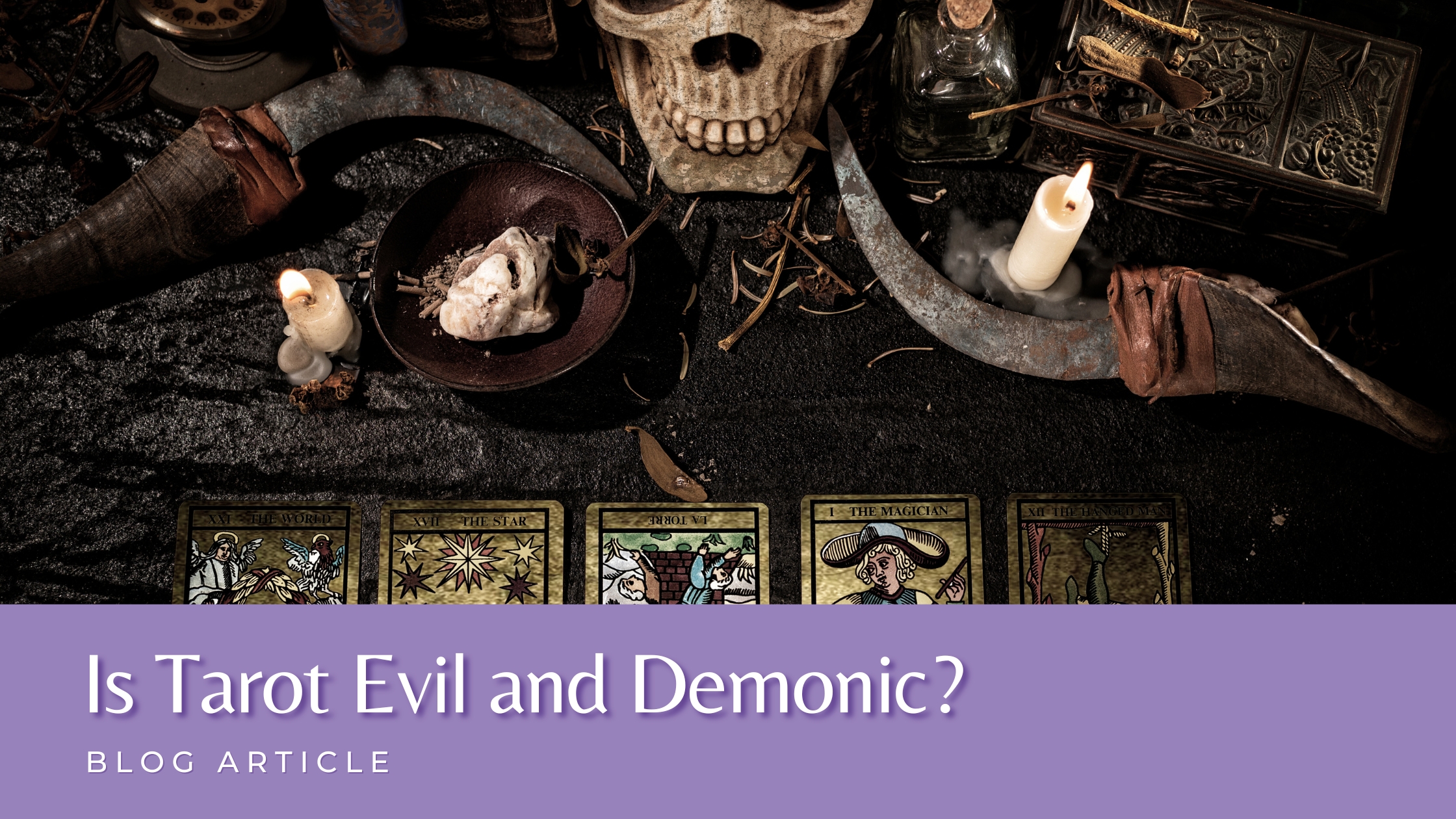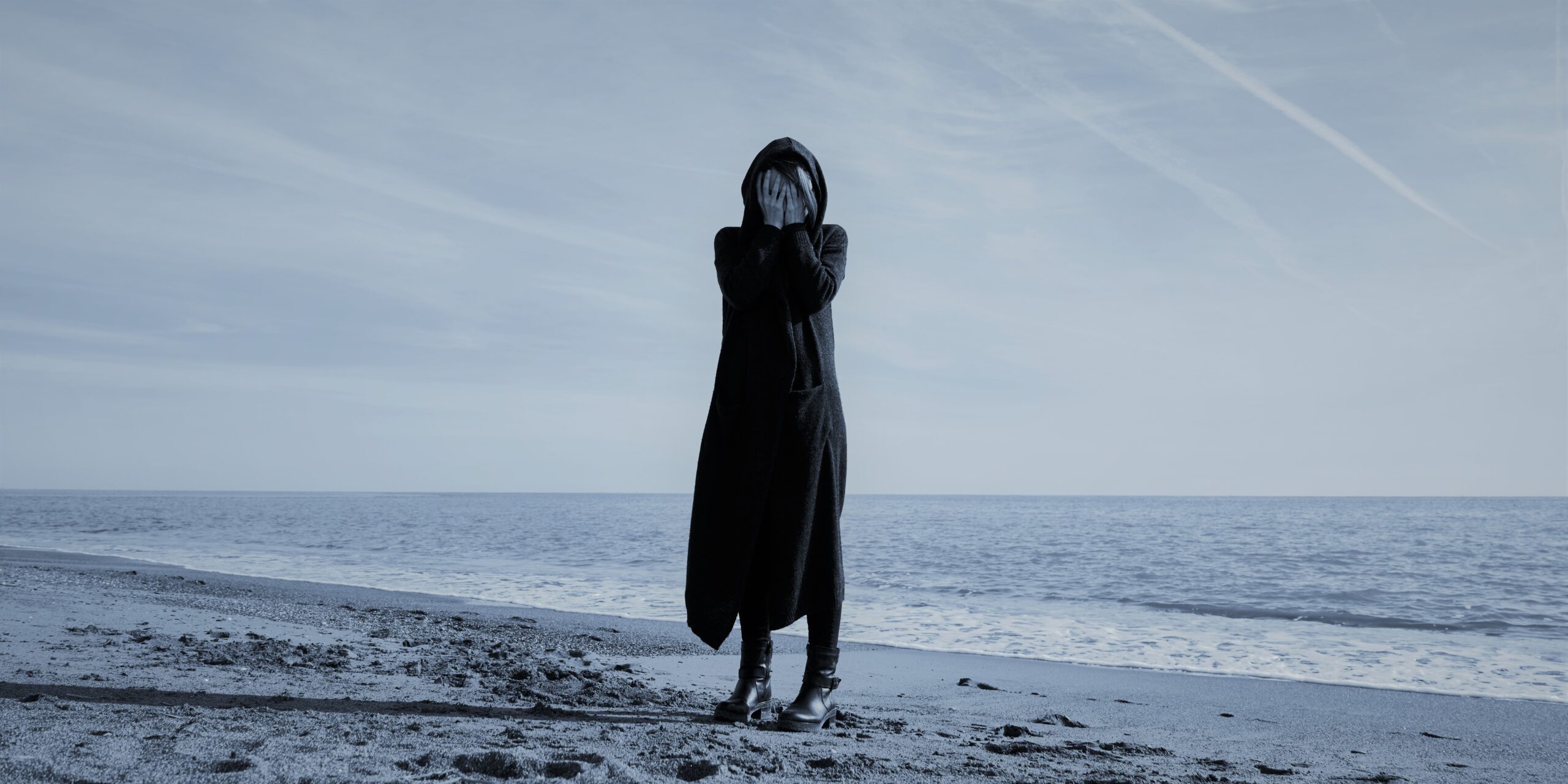Is Tarot Evil and Demonic?
Hello, my soul friends! Have you ever had someone, perhaps a Christian or a Muslim, say that tarot is evil and the work of evil spirits? It probably surprised you and made you wonder whether or not they were right.
This is a common perspective among some world religions, especially the Abrahamic ones. These people mean well, but they’ve attached themselves to a stigma unfounded on reality.
Unfortunately, this mistaken belief has resulted in tarot having a bad reputation among many. Here’s why they’re wrong.
It Started in Canaan
I have a new age view of spirituality, but I also see merit in traditional values. Because of this, I’m able to perceive how and why some world religions have a bad opinion of tarot.
First, it helps to understand what tarot is. Tarot is a relatively modern fortune-telling tool that uses shuffled cards to reveal messages from the universe. It’s not an old practice.
However, some world religions see fortune-telling, or divination as it’s often known, as evil. The ancient Israelites, the source of most antagonism against divination in the world today, lived in Canaan during a time of widespread child sacrifice and this shaped many of their spiritual views. Understandably it left a deep cultural wound.
If you read their religious texts, you’ll notice a pattern in which the Israelites strongly rejected human sacrifice. These sacrifices were tied to religious practices and it appeared the children of the poor were targeted according to some sources.
Because the Israelites were outsiders in Canaan before they took over, many of their children were likely sacrificed. The Israelites eventually developed practices intentionally different from their child-sacrificing neighbors and this included the general rejection of divination. If the Canaanites believed one thing, then the Israelites would believe the opposite.
That said, the widespread child sacrifice in Canaan was not common in all pagan cultures that used divination. The Greeks and Romans were horrified by this practice!
But the Israelites and the later Abrahamic religions carried this unfounded fear against divination into the modern world due to their history with the Canaanites.
Tarot Is Mystical, Not Dogmatic
You’ll tend to notice that the more organized a religion is, the more likely it will reject fortune-telling practices like tarot. That’s because some religions distrust personal mystical experiences.
They don’t believe a normal person can receive divine revelations. Those that do still expect those revelations to be matched to an existing religious text.
I don’t think this is unreasonable. There are many examples from history where someone claimed to have a mystical revelation and then acted in a way that was harmful to others.
It can also challenge existing religious dogma. The founder of Mormonism believed he had a revelation and uncovered new Christian scriptures near his home in New York. This was at a time of general spiritual revival and esoteric exploration.
Many people who use tarot today assume that everything the cards say is true, but they won’t accept the mystical revelations others experience in different situations.
It’s human nature to doubt the mystical experiences of others and organized religions systematize that doubt into a cultural practice to protect the vulnerable. People want proof before they trust someone else and proof needs evidence. It’s too easy for someone to lie or be delusional.
That said, mystical practices are common in every spiritual path because it’s necessary to feel a connection to the sacred. Christians pray, Buddhists meditate, and tarot readers connect to something higher than themselves to receive their messages.
As long as the person using tarot focuses on personal development instead of trying to install a new societal dogma… there really isn’t a difference between tarot and other spiritual practices like Christian prayer.
Tarot Is Misunderstood
There are a lot of wild misconceptions about tarot among supporters and those who reject it. Until a few years ago, most believed that tarot either came from Egypt or the Roma and was therefore an ancient practice tied to a pagan religion.
This simply isn’t true. Tarot was developed from the Italian card game tarocchi during the late Medieval era. Although the divinatory aspects were inspired by Renaissance fascination with movements such as Hermeticism and alchemy, the creators were firmly within a Christian worldview and you can see that in many of the cards which feature Christian concepts such as The Devil and Judgment.
Tarot utilizes symbolism to impart a message similar to the way Tolkien used it in the Lord of the Rings, Jesus in his parables, and the Israelites in their scriptural stories. You’re meant to contemplate the archetypes presented and consider how it’s reflected in your life.
Don’t forget that tarot is rather unique among many of the common fortune-telling methods of today. It started to formalize after the invention of the printing press and became common enough for the average person to know about following the scientific and industrial revolutions. Jewish Qaballah influences were added then too.
Tarot is fully embedded in the Western esoteric tradition, but it’s founded strongly not in an Indo-European or Near Eastern pagan origin, but a Christian one.
That’s why tarot has more free will elements than most fortune-telling methods. It’s also why many tarot users generally feel that the messages come from angels or universal energies rather than pagan gods (even among modern witches and pagan tarot readers). It’s just not sourced from that tradition.
Demons simply aren’t involved and it’s not meant to be used for evil, but personal development within an existing Christian moral cultural framework. It just so happens that most tarot users are no longer Christians because of the secularization of society.
Tarot and Biblical Sortition Use the Same Method
Did you know that the metaphysical process tarot uses is similar to a practice accepted in the Bible?
There are two known examples using a practice called sortition or the “casting of lots.” This is where you make decisions by taking an assortment of items, such as sticks of different lengths, and then shuffle them. Depending upon pre-agreed meanings, picking the lots divines the intention of God that you should follow.
The first example occurs in Leviticus 16:7 wherein the Israelites cast lots to determine which goat would be their temple sacrifice and which would become their scapegoat. As this is an official practice outlined by Moses it’s not an example of a forbidden practice through narrative as is so often the case of other occult practices in the Old Testament.
The second example occurs in Acts 1:23 when the apostles cast lots to determine who would replace the traitor Judas. Acts is believed to have been written by a companion of Paul and composed a few decades after the death of Jesus. Like the first example, it would’ve been seen as an accepted practice among Christians – especially since that very same book outlines that other divination practices are not to be used in Acts 19:18.
Although tarot isn’t designed to be a specifically Christian practice, it does follow Christian conventions and is therefore in line with the very same religions that criticize it today. There’s no mystical process in tarot which isn’t also used in biblically acceptable sortition.
Feel Free to Use Tarot
To all the beautiful souls out there, I hope you have a greater understanding of the unfounded bias against tarot. It originates from a deep cultural wound that developed into an unrelated prejudice against spiritual practices like fortune-telling.
However, those who are against tarot today are unaware that the practice is more similar to the mysticism of prayer than to demonic offerings to evil gods. It’s also deeply influenced by Christianity and can even work within that theological framework.
For those who fear tarot might be evil, don’t. Most tarot readers find that tarot is empowering for self-development and perfectly in line with existing moral frameworks.
Did you like this? Let me know! And don’t forget to subscribe to my newsletter to receive e-mails when new articles and tarot pick a cards are published. If you really liked this article, you can also tip me on Ko-fi.







Hi Emmamarie. You haven’t heard from me because I hit bottom. Last week I was on Percosets and could not take the drug from terrible side effects. I was so sick. At the same time, I was hit with thousands of dollars of medical bills for the hospital, surgeon, nursing home, I have Medicare and it only pays 80%. The other 20% I am responsible for. I don’t have a secondary insurance plan because I am on disability and it costs $1200 a month (cant afford it). Also last week I went to physical therapy and my 32 year old therapist had a brain seizure and died. He was perfectly healthy and just died. I crashed. My pain doctor dropped my opioids to the next level down, from Percosets to Vicodin, the lowest level opioid. Taking 8 per day. Needless to say I have been sick as a dog, in bed all day. I will be back.
Oh my gosh, that sounds so difficult! I don’t even have words for the struggle you’re going through right now. All I can say is that I’m praying and wishing the best. Make sure you that you take whatever time you need to heal and decompress. Not only are you dealing with financial and medical issues right now, you’re also dealing with emotional pain and stress. I really hope things look up for you soon. It always seems like everything hits at once, doesn’t it! 🙁